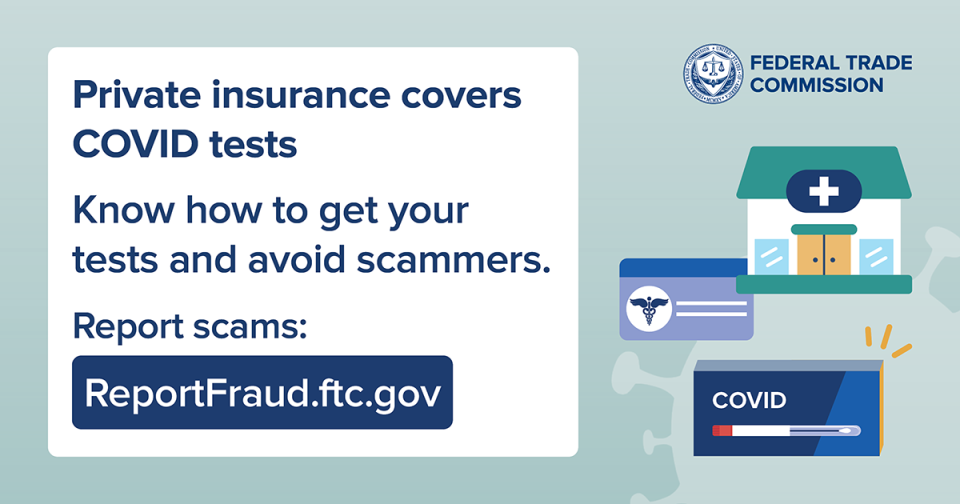

While you can no longer get free COVID-19 test kits from the federal government, if you have health insurance, you’re covered for eight free over-the-counter, at-home COVID-19 tests each month. So if you have health insurance through your employer, or if you have a plan through the Affordable Care Act’s marketplace, each person on your plan can get eight tests per month. If you’re on Medicare, you’re also covered for 8 free over-the-counter COVID-19 tests each month.
There are two ways to get your tests for free: (1) use a pharmacy or store that your health plan designates “in network” where you’ll be charged $0 or (2) get reimbursed by submitting a claim to your insurance plan. Check with your health insurance provider to find an in-network pharmacy or to know what receipts or other documentation you’ll need.
For more information, including other free COVID-19 testing options, visit COVID.gov/tests.
Since we know scammers are targeting Medicare recipients with fake offers for free tests, it’s a short leap to say they might also approach people with private health insurance, trying steal your personal information to commit fraud and bill bogus charges to your insurance.
To keep your information safe:
If you suspect a scam, let the FTC know at ReportFraud.ftc.gov.
Comments have been turned off for this consumer alert.It is your choice whether to submit a comment. If you do, you must create a user name, or we will not post your comment. The Federal Trade Commission Act authorizes this information collection for purposes of managing online comments. Comments and user names are part of the Federal Trade Commission’s (FTC) public records system, and user names also are part of the FTC’s computer user records system. We may routinely use these records as described in the FTC’s Privacy Act system notices. For more information on how the FTC handles information that we collect, please read our privacy policy.
The purpose of this blog and its comments section is to inform readers about Federal Trade Commission activity, and share information to help them avoid, report, and recover from fraud, scams, and bad business practices. Your thoughts, ideas, and concerns are welcome, and we encourage comments. But keep in mind, this is a moderated blog. We review all comments before they are posted, and we won’t post comments that don’t comply with our commenting policy. We expect commenters to treat each other and the blog writers with respect.
We don't edit comments to remove objectionable content, so please ensure that your comment contains none of the above. The comments posted on this blog become part of the public domain. To protect your privacy and the privacy of other people, please do not include personal information. Opinions in comments that appear in this blog belong to the individuals who expressed them. They do not belong to or represent views of the Federal Trade Commission.